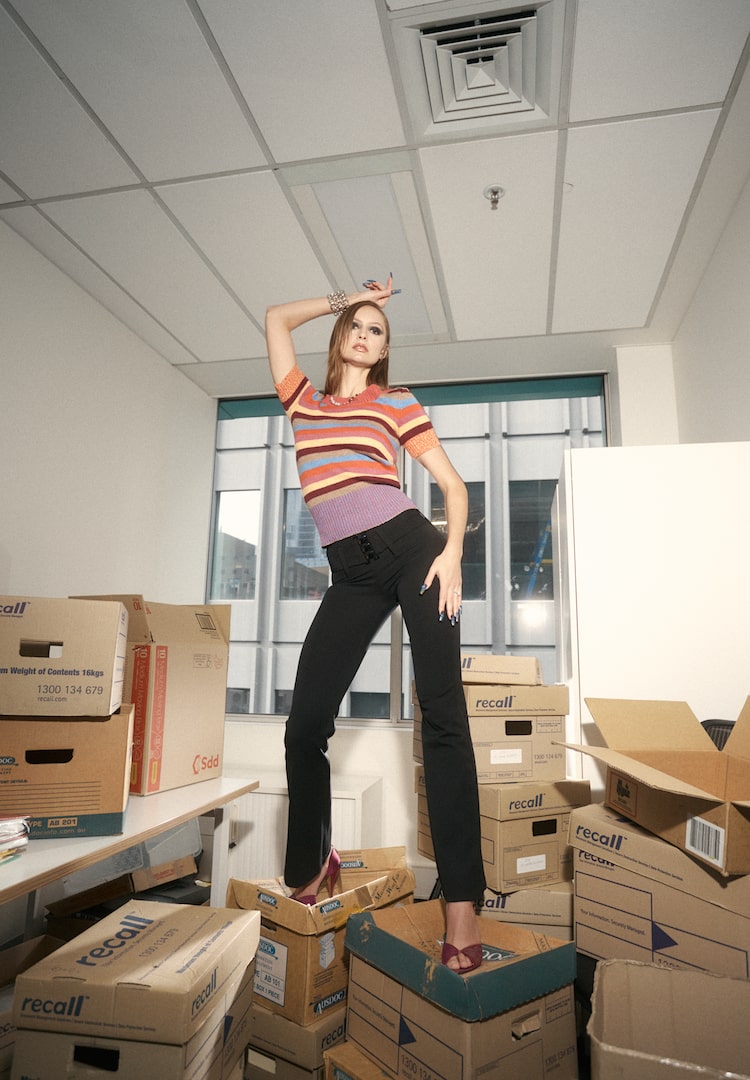Am I too reliant on melatonin for sleep?
WORDS BY Emily Mcgrorey
“Though the directions on the bottle were clear… I found myself turning to it more and more often.”
Like a lot of questionable habits, this one started off innocently enough. After telling a friend about the frequent issues I have getting to sleep, they suggested I try melatonin.
Melatonin is a naturally-occurring hormone produced by the pineal gland in the brain that is stimulated by darkness. Levels of melatonin fluctuate throughout the day, increasing as it gets dark and peaking between 2AM and 4AM, before gradually decreasing. Basically, it signals to your body that it’s nighttime, which means rest.
Interested to hear how others navigate the world? Head to our Life section.
Lauding melatonin’s ‘natural’, non-addictive benefits, my friend made a convincing case. So, after yet another sleepless night, I gave it a go – and it worked like a charm.
Though the directions on the bottle were clear, ‘melatonin is a night-time sleep aid for occasional sleepiness’ (occasional being the operative word here), I found myself turning to it more and more often. After going through a bit of a rough patch with my anxiety and sleep, I started taking it nightly for several weeks.
During this time, I got quite severe headaches during the day, which I’ve since learnt is a common side effect of melatonin use. Other common side effects include dizziness, irritability, nausea, and daytime drowsiness. Wanting to avoid the headaches, I stopped taking it – and that’s where things got interesting.
Without melatonin, I was back on my BS, wide awake at 2AM with a racing mind. Night after night, I found my best intentions dissolving faster than the little pill I’d once again just popped, forcing me to ask myself, ‘Do I have a melatonin problem? Is that even a thing?’
And not to deflect, but with #melatoninaddict raking up more than 1.2 million views on TikTok, it seems I’m not the only one. But of course, we can’t rely on TikTok for all our medical opinions or personal justifications. This is why I’ve turned to Professor Sarah Blunden, clinical psychologist and head of paediatric sleep research at Central Queensland University, and Rosemary Clancy, a clinical psychologist at Sydney Sleep Centre, to find out more.
Can you get addicted to melatonin?
Kinda, sorta, not really – but also, maybe. Let me explain. There are two parts to addiction. One is physiological, where your body accepts a chemical into its system and then becomes dependent on it to function. The second is psychological, which can occur with almost anything.
As far as the physiological side goes, there doesn’t seem to be enough evidence to say melatonin can be an addictive substance. “From the small data that we have… we don’t think so, but we don’t have any evidence to say that it’s not or it is,” says Sarah. “So far, it looks pretty okay because you can stop it and it doesn’t seem to have a rebound effect like other sleep drugs.”
Sarah says a psychological addiction to melatonin is more likely. “Like any drug, if you’re desperate you’ll take it and if it works, you’re gonna go ‘I can’t live without this’. A lot of the problems with insomnia, which is the vast majority of people that will take melatonin… it’s largely a psychological issue.”
Just how natural is melatonin?
Just as my friend described it to me, melatonin is often marketed as being a ‘natural’ substance, however, Sarah says this isn’t accurate. “When you buy it over the counter, it’s clearly not from our own body, it’s a synthetic version of the same thing – so in a bottle, [it] is not natural.”
Is it a problem to take melatonin long-term?
This seems to be another grey area, again due to a lack of research. “TGA guidelines allow and recommend adults over 55 can buy it over the counter… there are enough studies to say that it’s safe, that the side effects are minimal and it’s an effective drug,” Sarah says. “…We don’t have any long-term data on other typically developing children, adolescents or early adults.”
Rosemary says it’s also important to consider the context in which melatonin was formulated. “The reason it was originally manufactured was for jet lag, and that’s what it does beautifully. It helps to get us back into a time zone when we need to quickly adjust to live our social and work lives. One of my clients said he would never use melatonin at home, only when travelling… and I think that’s a pretty sound way to go.”
How do you ‘get off’ melatonin?
Reduce intake over time
“Taking melatonin is not like using a benzodiazepine medication like… Valium or one of those medications that really is habit-forming. You wouldn’t want to quit any of those medications cold turkey, because potentially – depending on how long you’ve been using them – there could be a seizure risk. With melatonin, because it mimics our own sleep hormone production, you could taper off that more quickly, but for the psychological dependency I would taper off over a couple of weeks to a month,” says Rosemary.
Speak to a sleep expert
Sarah says, “For any insomnia-related issue, a sleep psychologist or behavioural therapy is the most effective long-term… more than any other drug,” Additionally, Sarah advises the best approach is to wean yourself off while implementing a range of cognitive behavioural therapies.
Be careful where you get it
If you continue taking melatonin while weaning yourself off, it’s recommended to source it from Australia via a health professional. “There’s a lot of melatonin available online… and in other countries… it’s a supplement, not a medication, and supplements are not regulated like medications. So, you really don’t know what you’re getting online,” says Sarah. One Canadian study found that actual melatonin content varied from 83 per cent less to 478 per cent more than was indicated on a supplement’s label.
As for me, I’ve come to view melatonin as more like treating the symptom rather than the cause, which has helped reduce my intake. However, my biggest takeaway from speaking to the experts is probably just that. Despite the popularity of any medication, always speak to a medical professional first, and leave TikTok for watching and making trending dances with well-meaning friends.
For more on melatonin and addiction, head here.













